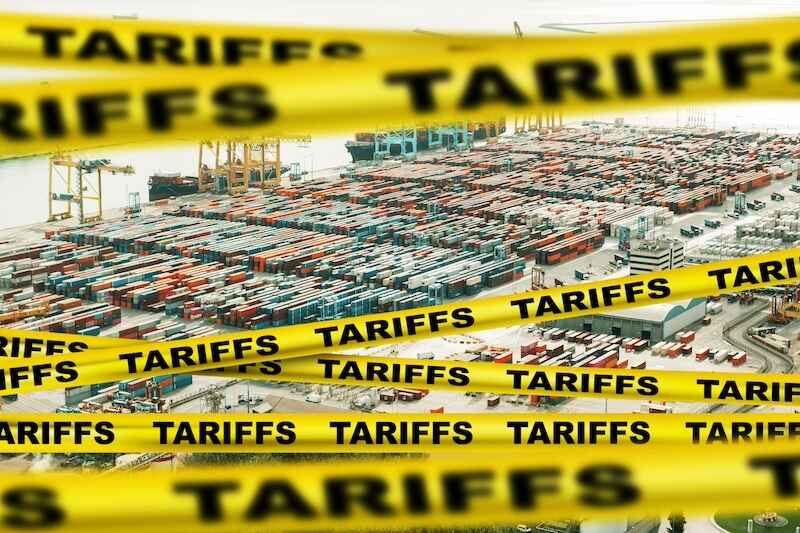The First Bellwether You Need to Watch to Avoid a Portfolio-Wrecking Loss
Shah Gilani|August 28, 2020
In Wednesday’s Total Wealth,I explained how there is no comparison between the 1999 rally that led to the Tech Wreck of 2000 and the 2020 rally that’s getting ever more irrational.
Of course, there are valid comparisons.
And you need to watch a few equity bellwethers to not get your head handed to you financially, and better yet, to profit from in months ahead.
Irrational Exuberance Poster Boy
How about we touch base on Tesla Inc. (NasdaqGS:TSLA) stock and how it’s the poster-boy of the 2020 irrational exuberance melt-up?
Tesla sold (I didn’t say delivered) 90,650 vehicles worldwide in Q2/2020, according to Tesla.
According to Statista: General Motors sold (actually delivered) 733,697 vehicles, just in the U.S. in Q2/2020; Ford sold 433,869 in the U.S.; Fiat Chrysler sold 367,086 in the U.S.; Toyota sold 398,029 in the U.S.; Volkswagen sold 116,965 VWs, Audis, Porsches, and Lambos… in the U.S. in Q2/2020.
Not for nothin’, as they say in Brooklyn (I used to live there and loved it), that’s 90,650 Tesla sales worldwide vs. 2,049,646 vehicles sold just in the U.S. by those other guys.
Not apples to apples you say. Maybe, but a good comparison nonetheless, because at noon today when TSLA traded around $2,254 a share its market capitalization amounted to $420 billion. Around the same time today, the combined market cap of GM, F, FCAU, VW, and TM (who sell cars worldwide, not just in the U.S.) amounted to $416.65 billion COMBINED.
Maybe it’s not irrational exuberance, but just this year, from January 2, 2020 to midday today (it’s Thursday 8/27/20) TSLA stock is up $1,842 or 423.8%, in 8 months.
If that’s not irrational, fuhgeddaboudit.
Tesla’s Hidden Balance Sheet is Propping Up Revenues
Okay, you’re a Tesla fan, I get it. Me too. I love their cars, especially the S models.
But falling in love with the stock and believing Tesla’s more than what it is at this juncture, which is a car company, not the Amazon of all things electric and a transportation technology platform, though Ringmaster Elon Musk would have us believe in his magic, is just wishful thinking.
Tesla’s got problems, accounting problems in my opinion, and I’m not alone thinking that.
In a July 23, 2020 piece at ZeroHedge by “Toulour” (like Tyler Durden, the principal writer at ZeroHedge, the nom is a movie character, in Tyler’s case, from Fight Club) titled, Gordon Johnson: Tesla “Engaged In Accounting Games” To Make Their Q2 Profit, Toulour begins the piece by saying, “Gordon Johnson of GLJ Research put out a note after Tesla’s earnings telling us what we already know for the most part: Tesla’s growth story is an illusion and the company was only able to turn a profit when it reported yesterday due to the sale of regulatory credits and other financial engineering.”
It looks like Tesla sold, or accounted for sales, of $428 million in “regulatory credits” in Q2, which helped it register a $16 million GAAP net profit. Three GAAP profits in a row now and Tesla’s being considered for membership in the vaunted S&P 500. I’ll come back to that, for sure.
What are regulatory credits? Funny you should ask…
They are programs like California’s Zero Emissions Vehicle (ZEV) program which mandates automakers sell a certain number of electric vehicles relative to total sales to receive credits. Ten other states in the U.S. have adopted similar measures. If an automaker ends the year without sufficient credits, they’re fined – that is unless they buy them from a company exactly like Tesla.
According to Car & Driver magazine, “Similar measures have been put in place in the European Union, where rules mandate average emissions from new vehicles. In order to avoid what could have amounted to over $2.1 billion in fines according to analysts, Fiat Chrysler paid Tesla hundreds of millions of dollars so their vehicles are counted in the same fleet and therefore FCA’s emissions are averaged with those of Tesla.”
Tesla’s been racking up revenues selling credits for years, which a lot of investors don’t understand, or think it proves how smart Tesla is.
Tesla, make that Elon Musk, understands how to play the credits game.
In 2006 Musk backed his cousins, brothers Peter and Lyndon Rive, founding and building SolarCity, a solar panel company whose existence was predicated on “credits,” as in government credits for alternative power, state credits for the same, power grid credits for selling utilities unused solar electricity, credits, not revenues. Tesla bought struggling, dare I say failing, SolarCity in a $2.6 billion “merger” in 2016. Both cousins are long gone, and the credits are too.
So, forgive me if I’m skeptical about Tesla’s accounting, its reliance on credits, the irrational exuberance over its future, and its stock price.
Tesla and the S&P 500
Back in the ZeroHedge piece, Toulour cites “Tesla’s CFO, Zach Kirkhorn, saying in a conference call, “We don’t manage the business with the assumption that regulatory credits will contribute in a significant way to the future. Yeah, I do expect regulatory credit revenues to double in 2020 relative to 2019, and it will continue for some period of time, but eventually this stream of regulatory credits will reduce.”
Don’t be surprised if Tesla gets into the S&P 500, though I would be incredibly surprised because it has no place in there, or if once it’s in and crashes the whole market falls off its perch.
Because that’s what Tesla could do to the S&P 500, to the rally, and to your pocketbook.
It’s not often that one stock is a bellwether for the entire market, but in this case, Tesla fits the bill, especially if it gets into the S&P 500.
Then, its buyer beware.
I wouldn’t touch Tesla with a ten-foot pole, not now, maybe not ever. It’s going up, then down, maybe up again. If it started doing loop-the-loops, zig zags, or playing hopscotch, I would be less than surprised.
Right now, there’s no good way to play Tesla. But there are stocks that have handed us ample opportunity, time and time again.
I’ve picked my favorites and my hateds, and you can see them all right here, in a lightning-round, get-it-while-you-can presentation that’s nothing like I’ve ever done before.
Until then,
![]()
Shah Gilani

Shah Gilani
Shah Gilani is the Chief Investment Strategist of Manward Press. Shah is a sought-after market commentator… a former hedge fund manager… and a veteran of the Chicago Board of Options Exchange. He ran the futures and options division at the largest retail bank in Britain… and called the implosion of U.S. financial markets (AND the mega bull run that followed). Now at the helm of Manward, Shah is focused tightly on one goal: To do his part to make subscribers wealthier, happier and more free.

